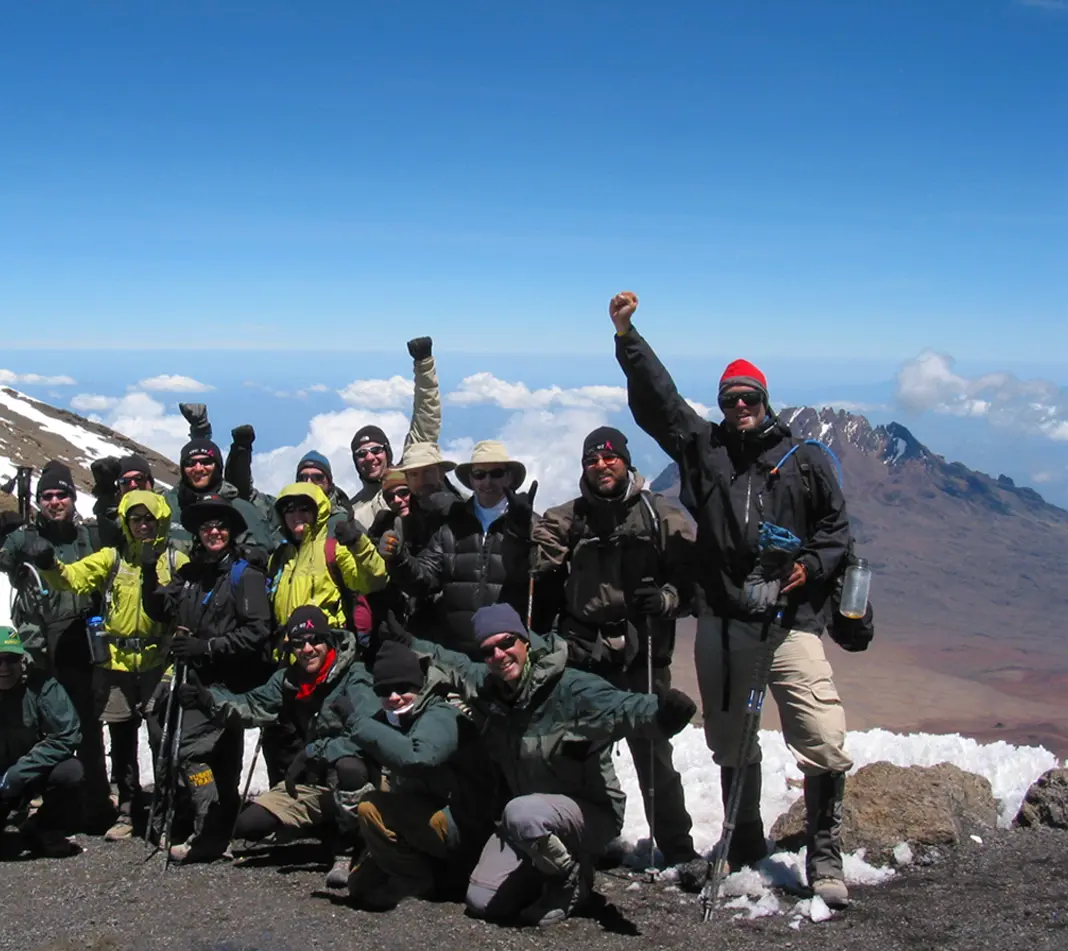International:
North America:
Menu

THE KINGS OF KILIMANJARO
International:
North America:
- Home
- Kilimanjaro Climb
- Kilimanjaro Planner
- Other Treks
- About Us
- Dates + Prices + Booking
- Contact
International:
North America:

THE KINGS OF KILIMANJARO
International:
48 Years
of Epic Journeys
Join the Many Trekkers Who
Discovered the Tusker Trail Magic.
Owned by a guiding family for 48 years.



















































































Transformative
Kilimanjaro Climbs
Tusker Trail stands apart from the many middlemen selling Kilimanjaro climbs. We have our own ground operation in Kilimanjaro’s foothills, with full-time climbing teams, gear and local contacts. We are a family-owned guiding company with over 48 years of valuable experience leading climbs on Kilimanjaro.
Our elite guides and crew treat you like family, ensuring a personalized experience. Our own independent climbs provide you with direct access to our expert knowledge and professional support. Our responsive approach caters to each climber’s specific needs, boasting a remarkable 98% summit success rate.
With our own ground operation and a highly engaged full-time staff we provide an exceptional climbing journey, from sign-up to summit and all the way back down.
Face the Challenge
98% Summit Achievement
For almost 5 decades Tusker’s elite guides have led many thousands of climbers to Kilimanjaro’s summit. Medically trained, with expert leadership skills, they guide you on the trek of a lifetime.

Explore our Treks Around the Globe

Ethical Porter Climbing Standards
For almost 50 years Tusker Trail helped forge the path to ethical climbing standards for the guides and porters on Kilimanjaro. We’ve been involved with the Kilimanjaro Porters Assistance Project (KPAP) since its inception, offering advice and financial support.
Wildlife Safari & Zanzibar’s Beaches
Journey into the heart of East Africa’s wildlife reserves on safari and witness the awe-inspiring spectacle of the Great Migration. Explore exotic Zanzibar where your senses are awakened by the island’s tantalizing flavors and vibrant culture, surrounded by white sandy beaches.

Our Noble Approach
Tusker’s owners, Eddie and Amy Frank have spent decades leading treks around the globe. They have a vested interest in the communities, and conduct an adaptive and ethical adventure travel business that is harmonious in all respects with the land, the people, and the wildlife.
Ethical Travel
Treading Lightly
Cultural Awareness

Climb Kilimanjaro for Good
Climb Kilimanjaro for a noble cause. Organize a charity fundraising climb and take on an epic challenge at the same time. Join Tusker Trail’s tribe of noble climbers who have raised a massive $16,000,000 for over 90 charities and climbed Kilimanjaro for good.
The Adventure Chronicles
Plunge into Tusker’s pulsating Historical Timeline as 48 years of daring escapades unfurl. Eddie Frank, a bushcraft virtuoso, navigates 1970s military coups and drifts trucks down the heart of the River Congo. Witness the tapestry of wild exploits as they mold Tusker Trail, a premier adventure powerhouse.